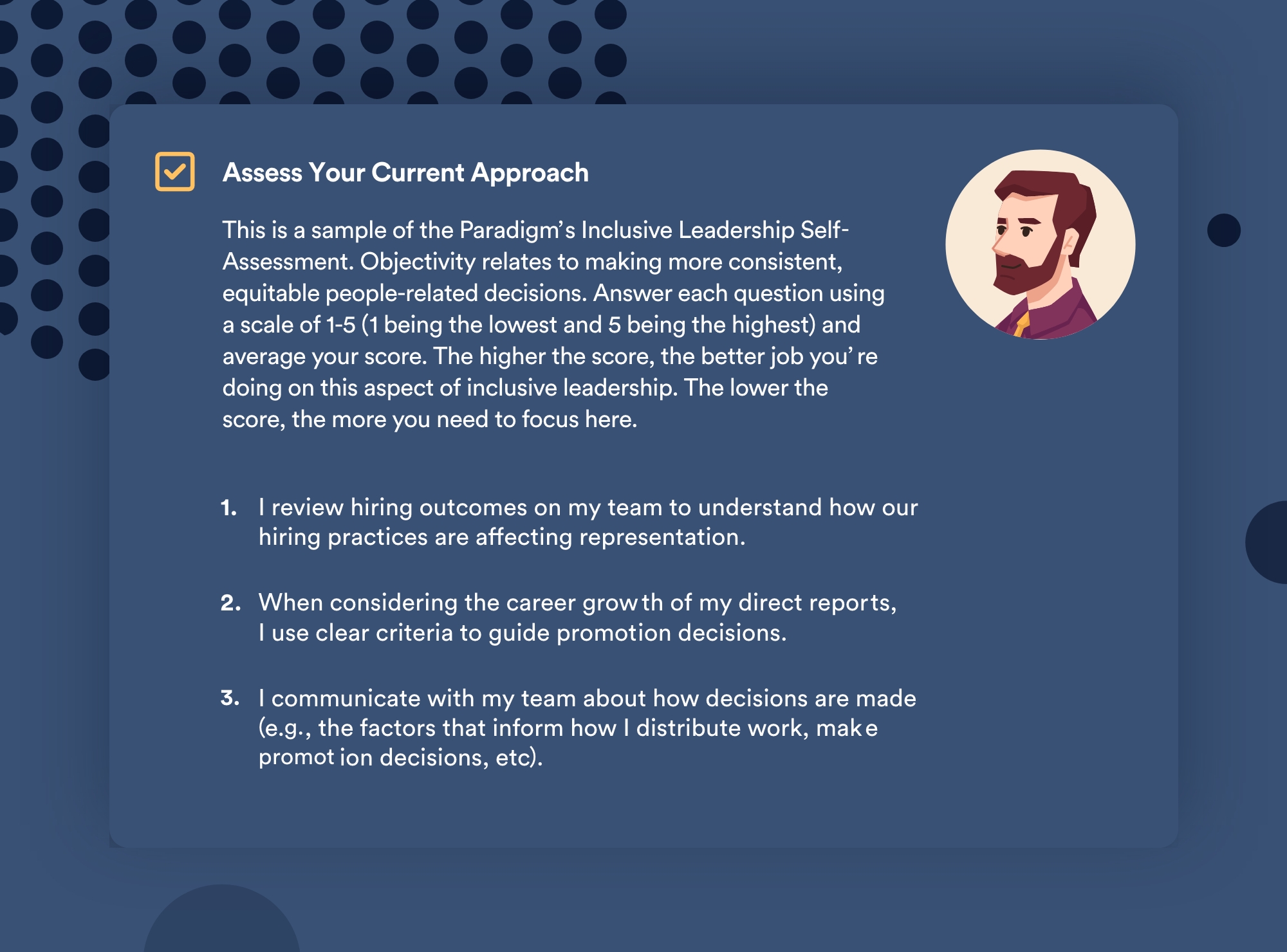Quantify Your Inclusion Skills: Understanding our Inclusive Leadership Self-Assessment
The leaders in your company — from executives to people managers — play a unique role in bringing diversity, equity, and inclusion (DEI) efforts to life. And while most leaders are bought into DEI efforts in theory, they often don’t know what to do in practice. Over the past year, we’ve had conversations nearly every day where a client tells us “my leaders are on board with DEI, but they need support translating that commitment to action.”
Our data show just how real that gap is. We’ve trained tens of thousands of leaders over the past decade and while 95% tell us they believe it’s important to foster inclusion, before our training, only 38% understand the strategies they can use to do it. After training, that number jumps to 83%.
Because so much of leaders’ day-to-day work — from hiring to establishing team culture to assigning work to evaluating performance — influences inclusion it’s critical to close that gap between intention and action. While you might be familiar with Paradigm’s four-pillar inclusive leadership framework — Objectivity, Belonging, Voice, and Growth — I wanted to share more about how our experts successfully translate those concepts into specific skills individual leaders can use.
The Paradigm Inclusive Leadership Self-Assessment
Part of the challenge in building inclusion strategies is, every leader is different. They have different strengths and weaknesses, and varying levels of exposure to DEI. To motivate leaders and maximize the efficacy of training, we’ve found it’s important to provide a common framework AND help each leader recognize and address their unique gaps.
That’s where our Inclusive Leadership Assessment comes in. The questions are behavior-based, prompting leaders to think about how frequently they engage a range of specific behaviors that a wealth of research shows contribute to more inclusive and equitable outcomes. For example, instead of asking, “do you believe you make objective decisions?”, we ask “When making decisions, [do you] seek out a broad range of perspectives to help inform your thinking.” We’ve found encouraging leaders to focus on their behaviors — not just how they see themselves — not only produces more accurate insights, it helps them begin to tie inclusion to their daily work.

After leaders finish the assessment, we analyze their responses and provide ratings (on track, at risk, or attention required), and insights in each inclusive leadership pillar. We also provide benchmarks showing how that leader’s ratings compare to others.
Most importantly, leaders get what they need most: specific, concrete feedback on what they can do to foster inclusion. We’re so excited about the impact of this assessment, that we’ve built tools to automate it so that it’s more accessible and scalable for large, global leadership teams. For teams that want support translating individual insights to action, we can always pair our assessment with training and coaching to help leaders bring new strategies to life.
If you’re interested in bringing the inclusive leadership self-assessment to your organization, we’d love to chat! Just fill out this form or email us. You can learn more about our full range of offerings here.
Additional Inclusive Leadership Resources
Looking for more inclusive leadership guidance?
- Download our refreshed whitepaper, with new data and sample questions from our self-assessment.
- Watch our interactive webinar and see the the self-assessment in action.
- Watch our Inclusive Leadership Learning Journeys webinar on demand.
July 26, 2023

 Our website uses cookies to distinguish you from other users of our website. This helps us to provide you with a good experience when you browse our website and also allows us to
improve our site. By continuing to browse our website, you’re agreeing to our use of cookies. For more information, please read our
Our website uses cookies to distinguish you from other users of our website. This helps us to provide you with a good experience when you browse our website and also allows us to
improve our site. By continuing to browse our website, you’re agreeing to our use of cookies. For more information, please read our
